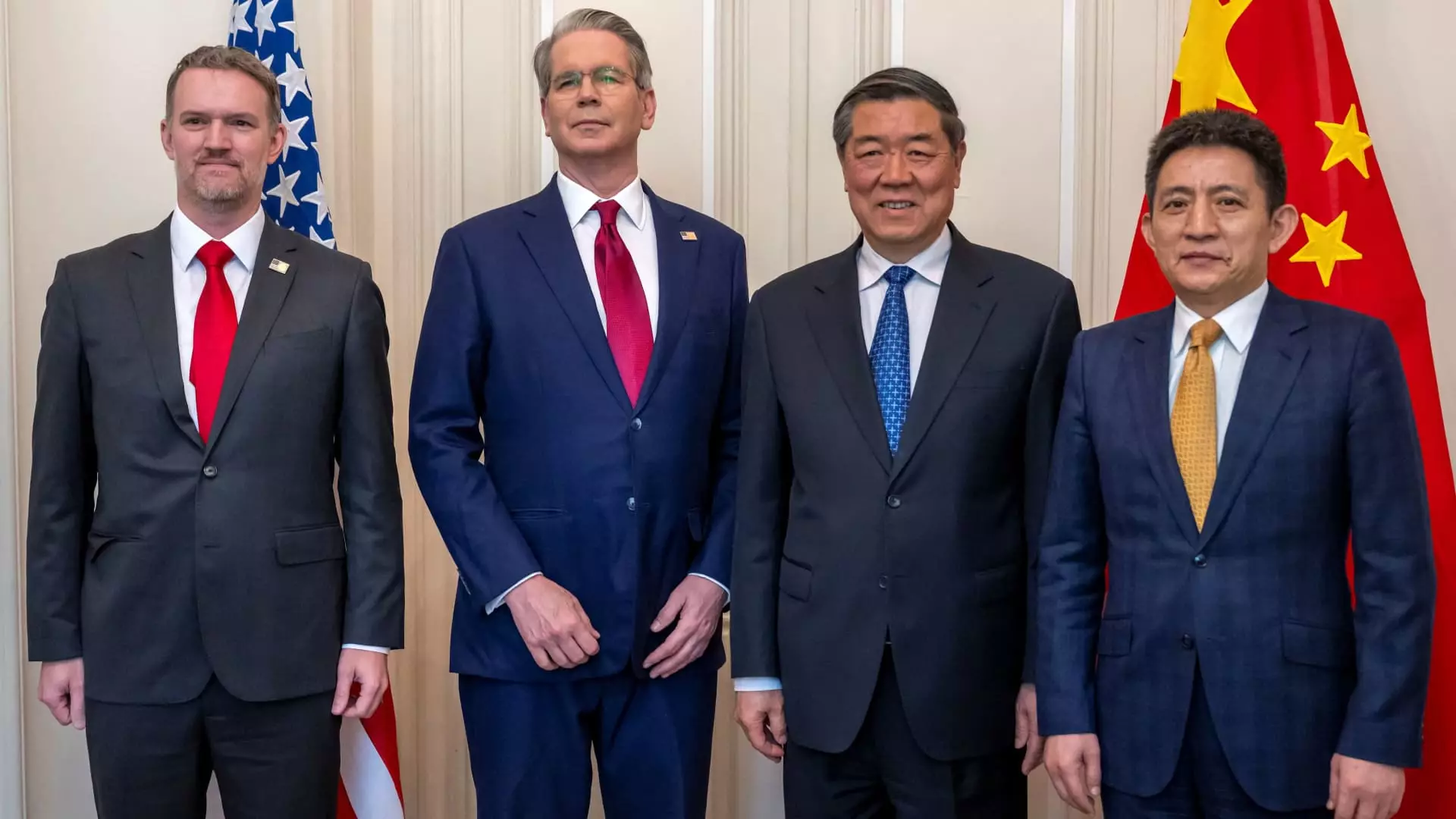As the U.S. and China prepare to engage in yet another round of trade discussions, one can’t help but feel a sense of inevitability about the futility of these negotiations. With both sides seemingly entrenched in their positions, the hope of achieving anything substantial feels increasingly elusive. The significance of these talks, set to unfold in London, cannot be understated, as they represent a critical juncture at which these two economic behemoths must grapple with a rising tide of tensions threatening to escalate into a full-blown trade war. Yet, the prognosis remains pessimistic. The crux of the issue? A clashing ideology that leaves both nations unwilling to budge on critical points.
Trading Blows, Not Compromises
The recent history of U.S.-China trade relations has been characterized by a dizzying array of import tariffs and retaliatory measures. Following a series of provocative tariffs announced by President Trump, Beijing responded in kind, leading to a spiraling cycle of economic hostility that has heightened uncertainties across global markets. The recent agreement in Geneva, which temporarily lowered some tariffs and aimed to pave the way for dialogue, was a brief flicker of hope in a climate of fear and mistrust. Still, as pointed out by a variety of economists, these short-term agreements are akin to putting a band-aid on a festering wound. With accusations of broken promises flying back and forth, neither side appears ready or willing to engage in a substantive resolution.
More Than Just Economics
These negotiations are no longer merely about trade deficits or import regulations; they represent an existential battle between two world powers seeking to assert their dominance in a rapidly evolving global landscape. As articulated by Rebecca Harding, the chief executive of the Centre for Economic Security, the stakes extend far beyond financial transactions—they encompass technological supremacy, data security, and even military readiness. Both nations are not just strategically positioned in an economic competition, but are also enmeshed in a complex web of ideological warfare that critiques the very foundation of their governmental structures. The rising influence of artificial intelligence, along with burgeoning defense industries, complicates matters further. This dialogue must encompass issues of digital sovereignty, which could redefine the notion of power in the 21st century.
Minimal Expectations, Major Implications
With the minds of experts set upon these discussions, the consensus appears bleak. Analysts such as Zhiwei Zhang of Pinpoint Asset Management express skepticism that any meaningful consensus can arise from these encounters. The projection of imminent détente seems more fantasy than possibility. Indeed, the potential for progress appears stunted by ongoing disruptions that neither side seems willing to acknowledge or address in earnest. While there may be isolated instances of agreements on specific import licenses, such gestures will likely do little to foster the trust needed for a broader resolution.
Time: The Ultimate Enemy
For both the American and Chinese economies, time ticks on with increasing pressure. The ramifications of prolonged stalemate in negotiations could lead to more dire economic conditions both domestically and internationally. With global supply chains already feeling the pinch, further erratic tariff implementations could generate instability that resonates throughout the world economy. The clock is ticking, yet with continued accusations and defensive postures, it seems as though both nations are caught in a waiting game, each anticipating the other to make the first move.
The talks in London are symptomatic of a deeper malaise, where the complexities of economic policy are interwoven with the intricacies of national identity and global influence. A resolution may be possible, but without a substantial shift in mindset from both parties, we find ourselves at a crossroads that leaves little room for optimism. The discourse ahead must not only focus on trade but also encompass a more cooperative approach that weighs the broader implications of their rivalry on international stability.

